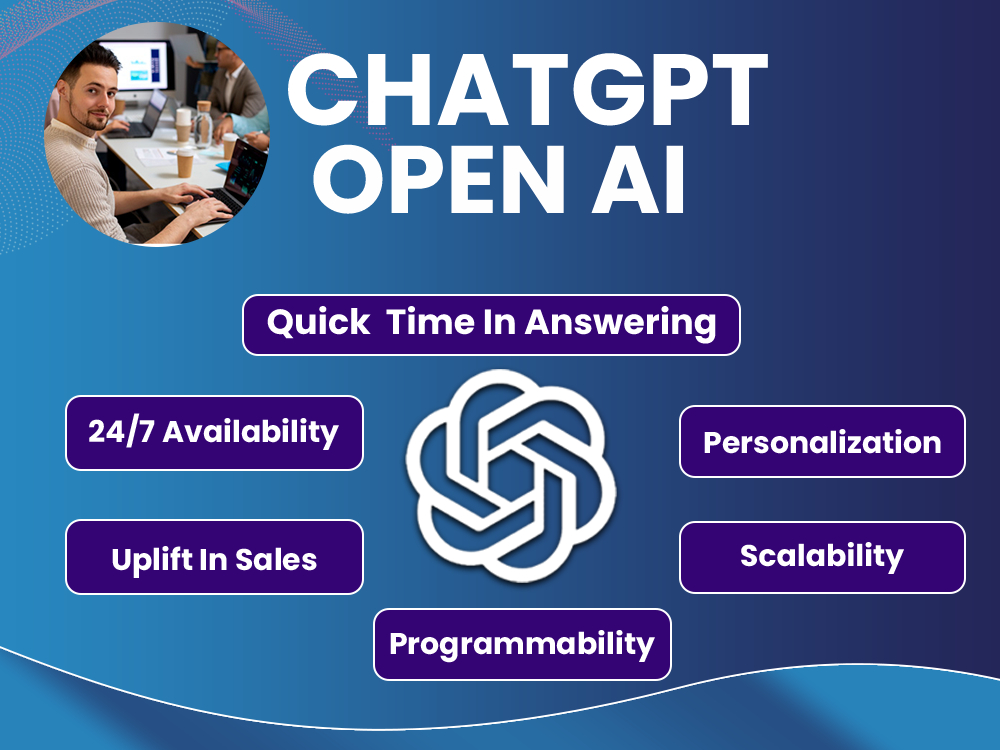
It demands a deep understanding of consumer behavior, efficient operational strategies, and a knack for delivering seamless customer experiences. This is where leveraging AI becomes a game-changer. Artificial Intelligence (AI) has transcended from being a buzzword to a critical tool for e-commerce success. Its applications span across various facets of online retail, from enhancing product discovery and optimizing inventory management to delivering personalized customer service and streamlining marketing efforts.
One of the most prominent ways AI revolutionizes e-commerce is through personalized recommendations. By analyzing vast amounts of customer data, AI algorithms can accurately predict consumer preferences and recommend products tailored to individual tastes. This not only enhances the shopping experience but also drives higher conversion rates and increases customer satisfaction. Furthermore, AI-powered chatbots have redefined customer service in e-commerce. These intelligent virtual assistants can handle inquiries, resolve issues, and provide support round the clock, improving responsiveness and reducing operational costs.
Additionally, AI plays a crucial role in optimizing inventory management. By leveraging predictive analytics, e-commerce businesses can forecast demand, minimize stockouts, and ensure optimal inventory levels, thereby improving efficiency and reducing costs. Moreover, AI-driven website customization enables businesses to create personalized shopping experiences for each visitor, increasing engagement, and fostering brand loyalty.
However, leveraging AI for e-commerce success is not without its challenges. From data privacy concerns to the complexities of implementing AI solutions, businesses must navigate various obstacles to reap the full benefits of AI technology. Nonetheless, the potential rewards are substantial. By embracing AI, e-commerce businesses can unlock new opportunities for growth, innovation, and competitiveness in an ever-evolving digital landscape. In essence, leveraging AI is no longer just an option for e-commerce success; it’s a strategic imperative in today’s hyper-competitive market environment.
Leveraging AI for E-commerce Success
Moreover, AI’s impact extends beyond operational efficiency to marketing effectiveness. Through AI-powered analytics, businesses can gain deeper insights into customer behavior, allowing for more targeted and personalized marketing campaigns. By analyzing data on browsing history, purchase patterns, and social media interactions, AI can identify trends, segment audiences, and deliver highly relevant content to each individual consumer. This not only improves the effectiveness of marketing efforts but also enhances customer engagement and brand loyalty.
In addition to its current applications, the future potential of AI in e-commerce is vast. Advancements in machine learning algorithms, natural language processing, and computer vision hold promise for even more sophisticated and intuitive AI-driven solutions. From virtual try-on tools for fashion retailers to AI-powered voice commerce assistants, the possibilities are endless. As technology continues to evolve, e-commerce businesses must stay agile and adaptive, continuously exploring and integrating new AI innovations to maintain their competitive edge.
In conclusion, leveraging AI for e-commerce success is no longer just a strategic advantage but a necessity in today’s digital economy. By harnessing the power of AI, businesses can unlock new levels of efficiency, personalization, and innovation, driving growth and staying ahead of the competition. As AI technology continues to evolve and mature, the opportunities for e-commerce businesses are boundless, making now the perfect time to embrace AI and embark on the journey towards sustained success in the digital marketplace.
Table of Contents
AI-powered personalized recommendations for online stores
In the competitive realm of online retail, personalized recommendations powered by artificial intelligence (AI) have emerged as a pivotal strategy for enhancing customer engagement and driving sales. By harnessing vast amounts of customer data, AI algorithms can analyze browsing history, purchase behavior, and demographic information to deliver tailored product suggestions to each individual shopper.
This level of personalization not only improves the overall shopping experience by saving time and effort in searching for relevant items but also increases the likelihood of conversion by presenting customers with products that resonate with their preferences and interests. Furthermore, AI-powered recommendation systems continuously learn and adapt based on user feedback and interactions, refining their suggestions over time to ensure relevance and accuracy.
This dynamic approach not only fosters customer satisfaction but also cultivates long-term relationships, as customers feel understood and valued by the brand. Moreover, personalized recommendations contribute to higher average order values and increased customer lifetime value, driving revenue growth and maximizing the return on investment for e-commerce businesses.
In essence, AI-powered personalized recommendations represent a sophisticated yet invaluable tool for online stores seeking to stay ahead of the curve and deliver exceptional shopping experiences that resonate with modern consumers.
Using machine learning algorithms to improve product search functionality
Implementing machine learning algorithms to enhance product search functionality is a pivotal strategy for e-commerce businesses aiming to optimize user experiences and drive sales. By harnessing the power of advanced algorithms, companies can revolutionize the way customers discover products on their platforms. Machine learning algorithms analyze vast amounts of data, including past search queries, browsing history, and purchase behavior, to understand user preferences and intent accurately.
This data-driven approach enables e-commerce platforms to deliver highly relevant search results tailored to each individual user, increasing the likelihood of conversion and customer satisfaction. Moreover, machine learning continuously improves its accuracy over time by learning from user interactions, ensuring that search results remain precise and up-to-date.
By investing in machine learning for product search, e-commerce businesses can stay ahead of the curve, providing a seamless and intuitive shopping experience that keeps customers coming back for more.
I. Introduction to AI in E-commerce
In recent years, the integration of Artificial Intelligence (AI) into the e-commerce landscape has marked a paradigm shift in how online businesses operate and interact with customers. AI, with its ability to analyze vast amounts of data and derive actionable insights, has become the cornerstone of success for modern e-commerce ventures. At its core, AI in e-commerce revolves around understanding customer behavior, preferences, and intent, thereby enabling businesses to tailor their offerings and services to individual needs.
Through sophisticated algorithms and machine learning techniques, e-commerce platforms can deliver personalized product recommendations, enhance search functionality, and provide seamless customer service experiences. Moreover, AI-powered chatbots have revolutionized customer interactions by offering instant assistance, resolving queries, and even facilitating purchases in real-time. Additionally, AI plays a crucial role in optimizing inventory management, forecasting demand, and ensuring efficient supply chain operations, thereby minimizing costs and maximizing profitability.
Furthermore, AI-driven website customization enables businesses to create immersive and engaging user experiences, fostering brand loyalty and driving repeat purchases. As e-commerce continues to evolve in a hyper-competitive landscape, embracing AI technologies has become imperative for businesses seeking sustainable growth and competitive advantage. In essence, AI represents not just a technological advancement, but a strategic imperative for e-commerce success, empowering businesses to innovate, adapt, and thrive in an ever-changing digital ecosystem.
II. AI Applications in E-commerce
In the dynamic landscape of e-commerce, the integration of AI applications has become increasingly vital for businesses aiming to thrive in the digital marketplace. AI offers a plethora of transformative solutions that cater to diverse facets of online retail, revolutionizing how companies engage with customers, manage operations, and drive sales. One of the prominent applications of AI in e-commerce lies in the realm of personalized recommendations.
By harnessing machine learning algorithms, businesses can analyze vast troves of customer data to discern individual preferences, shopping behaviors, and past interactions, thereby delivering hyper-personalized product recommendations that resonate with each user. This not only enhances the shopping experience but also boosts conversion rates and customer satisfaction. Additionally, AI plays a pivotal role in optimizing product search functionality, enabling users to effortlessly discover relevant items amidst vast product catalogs.
Through natural language processing and image recognition capabilities, AI-powered search engines can decipher user queries, understand context, and present accurate search results, thereby facilitating seamless navigation and enhancing user engagement. Furthermore, AI-driven chatbots have emerged as indispensable tools for e-commerce customer service. These intelligent virtual assistants leverage natural language processing and machine learning algorithms to interact with customers in real-time, addressing queries, resolving issues, and providing personalized assistance 24/7.
This not only augments customer satisfaction but also alleviates the burden on human support teams, enabling businesses to deliver efficient and responsive customer service at scale. Moreover, AI empowers e-commerce businesses to optimize inventory management through predictive analytics. By analyzing historical sales data, market trends, and external factors, AI algorithms can forecast demand with remarkable accuracy, enabling businesses to maintain optimal inventory levels, minimize stockouts, and streamline supply chain operations.
Overall, the myriad applications of AI in e-commerce underscore its transformative potential in reshaping the industry landscape, driving innovation, and fostering sustainable growth for businesses of all sizes.
III. Implementing AI Solutions for E-commerce Success
Implementing AI solutions for e-commerce success requires a strategic approach that integrates cutting-edge technologies with business objectives. First and foremost, businesses must identify key areas where AI can make the most significant impact, such as enhancing customer experiences, optimizing operations, and driving sales growth.
Once these areas are identified, it’s essential to select the right AI tools and platforms that align with the specific needs and goals of the e-commerce business. This may involve deploying AI-powered recommendation engines to personalize product suggestions, implementing chatbots for seamless customer service, or utilizing predictive analytics to optimize inventory management and supply chain operations.
Moreover, integrating AI solutions into existing e-commerce systems requires careful planning and seamless integration with other business processes and technologies. This may involve collaborating with AI solution providers, data scientists, and IT professionals to develop custom AI algorithms or integrate off-the-shelf AI solutions into existing e-commerce platforms. Additionally, businesses must invest in data infrastructure and governance practices to ensure the quality, accuracy, and security of the data used to train and deploy AI models.
Furthermore, implementing AI solutions for e-commerce success also involves ongoing monitoring, testing, and optimization to ensure that AI algorithms continue to deliver value and meet evolving business needs. This may involve analyzing performance metrics, gathering user feedback, and iterating on AI models to improve accuracy, relevance, and effectiveness over time. Additionally, businesses must stay abreast of advancements in AI technology and emerging trends in e-commerce to remain competitive and capitalize on new opportunities for innovation and growth.
Overall, implementing AI solutions for e-commerce success requires a holistic approach that combines technical expertise, strategic vision, and a customer-centric mindset. By harnessing the power of AI, e-commerce businesses can unlock new levels of efficiency, agility, and profitability, while delivering seamless and personalized experiences that drive customer satisfaction and loyalty in an increasingly competitive digital marketplace.
IV. Challenges and Future Trends
As the e-commerce landscape continues to evolve, businesses face both challenges and exciting opportunities in leveraging AI for sustainable growth. One of the key challenges is the need for robust data infrastructure and quality data sets to train AI models effectively. Without access to comprehensive and accurate data, AI algorithms may struggle to deliver meaningful insights and recommendations. Additionally, ensuring data privacy and security remains a critical concern, especially in light of stringent regulations such as GDPR and CCPA.
Another challenge is the potential for algorithmic biases, where AI systems may inadvertently perpetuate existing inequalities or stereotypes. It’s essential for businesses to implement measures to mitigate bias and ensure fairness in AI-driven decision-making processes.
Furthermore, the rapid pace of technological advancement presents both opportunities and challenges. While AI holds the promise of enhancing efficiency and driving innovation, businesses must stay abreast of emerging trends and continuously adapt their strategies to remain competitive. Future trends in AI for e-commerce include the rise of voice commerce, augmented reality (AR) for immersive shopping experiences, and the integration of AI into supply chain management for greater agility and resilience.
Moreover, as AI becomes more sophisticated, the skills gap becomes increasingly pronounced. Businesses need to invest in upskilling their workforce to harness the full potential of AI technologies effectively. Collaboration and partnerships between e-commerce companies and AI solution providers can also facilitate knowledge sharing and innovation.
In summary, while AI offers tremendous opportunities for e-commerce success, businesses must navigate challenges such as data quality, privacy concerns, bias mitigation, and skill shortages. By addressing these challenges proactively and embracing emerging trends, e-commerce businesses can position themselves for sustained growth and competitiveness in the digital era.
Implementing AI chatbots for customer service in e-commerce
Implementing AI chatbots for customer service in e-commerce has revolutionized the way businesses interact with their customers. These intelligent virtual assistants are capable of handling a wide range of inquiries and tasks, providing instant responses and personalized assistance round the clock. By leveraging natural language processing (NLP) and machine learning algorithms, AI chatbots can understand and interpret customer queries, accurately identify intent, and deliver relevant solutions in real-time.
This not only enhances the efficiency of customer support but also improves the overall user experience by offering prompt and seamless assistance. Moreover, AI chatbots can handle multiple conversations simultaneously, ensuring no customer is left waiting for assistance. They can also learn and improve over time, becoming more adept at addressing complex queries and resolving issues effectively. Additionally, AI chatbots can be integrated across various channels, including websites, mobile apps, and social media platforms, providing a consistent and unified support experience across all touchpoints.
Overall, implementing AI chatbots for customer service in e-commerce empowers businesses to deliver superior customer support, increase operational efficiency, and drive customer satisfaction and loyalty in the highly competitive online marketplace.
Leveraging predictive analytics for inventory management in online retail
Leveraging predictive analytics for inventory management in online retail is a strategic imperative for e-commerce businesses seeking to optimize their operations and meet customer demands efficiently. By harnessing the power of predictive analytics, online retailers can anticipate future demand patterns, optimize stock levels, and minimize the risk of stockouts or overstocking.
This data-driven approach enables businesses to make informed decisions about inventory replenishment, pricing strategies, and product assortment, ultimately enhancing profitability and customer satisfaction. Moreover, predictive analytics empowers retailers to adapt swiftly to market fluctuations, seasonal trends, and changing consumer preferences, ensuring agility and competitiveness in the dynamic e-commerce landscape.
By leveraging advanced algorithms and machine learning techniques, online retailers can forecast demand accurately, identify emerging trends, and optimize inventory allocation across multiple channels. This proactive approach not only reduces operational costs but also maximizes revenue opportunities, driving sustainable growth and long-term success in the fiercely competitive online retail market.
Enhancing user experience through AI-driven website customization
Enhancing user experience through AI-driven website customization involves deploying advanced algorithms and machine learning techniques to tailor online interactions according to individual preferences and behaviors. By analyzing user data such as browsing history, purchase patterns, and demographic information, AI algorithms can dynamically adjust website content, layout, and recommendations to meet the unique needs and preferences of each visitor.
Through AI-driven website customization, e-commerce businesses can deliver personalized product recommendations, content suggestions, and promotional offers, thereby increasing relevance and engagement. For instance, an AI-powered recommendation engine can analyze a user’s past purchases and browsing history to suggest products that are likely to resonate with their interests, leading to higher conversion rates and customer satisfaction.
Furthermore, AI-driven website customization enables businesses to optimize the user journey by delivering targeted content at each stage of the customer lifecycle. Whether it’s guiding first-time visitors through product discovery or re-engaging existing customers with relevant upsell opportunities, AI algorithms can adapt website content and messaging in real-time to maximize conversion opportunities and drive revenue growth.
Moreover, AI-driven website customization extends beyond personalized product recommendations to include dynamic pricing strategies, interactive chatbots, and intuitive search functionalities. By leveraging AI technologies to anticipate user needs and preferences, e-commerce businesses can create seamless and intuitive online experiences that foster customer loyalty and retention.
In summary, enhancing user experience through AI-driven website customization is not only about personalization but also about delivering relevant, timely, and engaging interactions that resonate with individual users. By harnessing the power of AI to customize website experiences, e-commerce businesses can differentiate themselves in a crowded marketplace, drive customer engagement, and ultimately, achieve sustainable growth and success.
V. Conclusion: Embracing AI for E-commerce Growth
In conclusion, the integration of AI technologies into e-commerce operations represents a pivotal step towards unlocking unparalleled growth and sustainability in the digital marketplace. By harnessing the power of artificial intelligence, businesses can revolutionize every facet of their online presence, from enhancing customer experiences to optimizing backend processes. Through personalized product recommendations, AI-driven chatbots, and predictive analytics, e-commerce enterprises can forge deeper connections with their audience, anticipate their needs, and deliver seamless shopping experiences that drive loyalty and satisfaction.
Moreover, AI enables businesses to streamline operations, improve efficiency, and make data-driven decisions that optimize inventory management, supply chain logistics, and marketing strategies. As the e-commerce landscape continues to evolve, embracing AI is not merely an option but a necessity for staying ahead of the curve and remaining competitive. By embracing AI technologies today, e-commerce businesses can position themselves for sustained growth, innovation, and success in the dynamic digital marketplace of tomorrow.
Unique FAQs About Leveraging AI for E-commerce Success:
How does AI improve customer experience in E-commerce?
- AI enhances customer experience by providing personalized recommendations, instant customer support through chatbots, and seamless shopping experiences.
What are the challenges of implementing AI in E-commerce?
- Challenges include data privacy concerns, high implementation costs, and the need for skilled professionals proficient in AI technologies.
What role does AI play in supply chain management for E-commerce businesses?
- AI optimizes supply chain operations by predicting demand, optimizing routes for delivery, and ensuring timely maintenance of equipment.
How can E-commerce businesses address ethical considerations in AI implementation?
- Businesses can prioritize transparency, fairness, and accountability in AI decision-making processes and invest in ethical AI education and training.
What are some future trends in AI for E-commerce?
- Future trends include voice commerce, augmented reality shopping experiences, and further advancements in personalized recommendations and marketing strategies.


